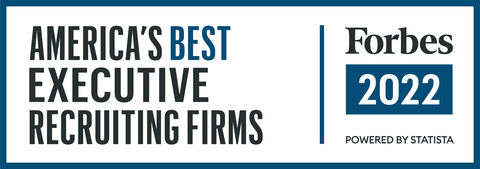Talent will get you in the door, but
character will keep you in the room.
Video Conferencing Fatigue: Does a Constant Stream of Virtual Calls Impact Work-From-Home Productivity?

The WFH model is now an integral feature of virtually every white-collar professional’s daily routine. Freed from the daily grind of an energy-draining commute to the office, most knowledge industry workers report they are starting work earlier and fully engaged for longer hours. This would seem to be a recipe for added productivity, particularly when linked to new video communication technologies. But for many workers, the physical limits of Zoom-type technologies and the natural inclinations of bosses to ensure full engagement of dispersed teams can lead to WFH burnout.
Exploring these two powerful forces through the eyes of a multimedia expert working in a professional services environment can yield some surprisingly common-sense solutions. Patrick Convery, Senior Marketing Manager at MRINetwork, one of the world’s leading talent access organizations, addresses the challenge for employees from a technology and management perspective.
“Most of my professional life has involved work in front of and behind a camera – capturing vivid images and smart dialogue to drive training, internal communication, and B-to-B thought leadership content to build brands,” says Convery. “My background should have fully prepared me for the sudden transition to a full-time WFH situation driven by the pandemic. But I got caught in the trap between video technology and an overcompensation for the lack of quality face-to-face time with team members and clients.”
Technology-savvy Convery initially welcomed the elimination of a three-hour round-trip commute to the office and was excited about the added time to accomplish more work – both faster and more effectively. He soon found, however, that his new-found productive time was consumed by an endless series of video calls and his inability to protect those precious hours to accomplish critical tasks.
He created a path out of the technology and time trap through three axioms, which are applicable to almost any role in the new world of work.
Axiom 1: Video calls are unnatural acts. Make them as natural as possible.
As user friendly as new Zoom technologies are, they all force participants to live in a one-screen, one-position environment. Patrick notes, “In normal, live, face to-face meetings, you can shift positions, move from side- to-side, cross your legs, and look pensively out the window as you absorb your colleague’s comments. Your listening skills are engaged and your body language is adding a communication layer to the speaker who senses your response to the dialogue.” Convery offers two key production tips:
- Use a camera angle that allows you to shift between sitting and standing. Controlled motion promotes more natural participation. Use a standing desk or elevate the position of the camera. When standing don’t hesitate to look off to the side as if looking out a window from time to time (even if it is an imaginary window). It provides a non-verbal cue expressing your interest in the comments to the speaker or the audience.
- Avoid the Brady Bunch effect – don’t try to look at all the participants at once for any length of time. Shift from the gallery view to speaker mode for a more natural focus on the speaker. Every so often, go to voice-only to allow for a brief stretching exercise.
Axiom 2: Consider an old-fashioned phone call for quick routine exchanges.
You remember phone calls, right? Hassle free, simple to arrange, and easily managed to be short and concise. Don’t hesitate to turn down a video request and suggest a voice-only alternative.
Axiom 3: Don’t suffer in silence.
If your schedule is overloaded with video check-ins, say something! Tell your boss that too frequent, lengthy, and often unfocused video calls are not productive for anyone. So far, technology hasn’t provided a solution for that important comment with a colleague traded briefly around the water cooler or as a quick question over the office partition. Until technology delivers that immediacy (and be assured it is being worked on right now), Convery notes, “You must be assertive and jealously protect that most precious commodity, time, to successfully get a job completed. If you need to block off your calendar to focus on executing tasks and guard against additional calls and meetings being added to your day – do it and don’t feel about it.”



